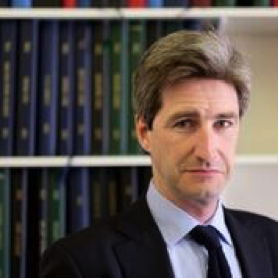(image source: QUB)
We are pleased to welcome Dr Ian S. Campbell (QUB) to the Centre for Early Modern Studies on 4th October. Ian’s talk, “Warfare and the Intellectual Culture of the Universities in Early Modern Europe,” is open to all and will take place at 3pm in the Kate O’Brien room (C1079), Main Building, UL. Ian is Senior Lecturer in Early Modern Irish History and Principal Investigator of War and the Supernatural in Early Modern Europe.
Abstract
Warfare is that area of human politics where most is at stake, and the great intellectuals of medieval and early modern Europe carefully analysed the rights and wrongs of it. But the histories of this political thinking about war that are currently available in English are flawed. They peddle crazy ideas about the Calvinist love of warfare, and ignore important areas of Catholic intellectual life, in order to tell a reassuring story about the origins of the modern, liberal, secular order. If we revise that view of Catholic and Protestant thinking on warfare, and we will be able to perceive some often neglected aspects of the modern world.
Historians of political thought pay considerable attention to the Dominican and Jesuit theologians of the sixteenth and seventeenth centuries, because these theologians distinguished between nature and supernature. Quentin Skinner, for example, understands the “natural” category to be very close to our modern, secular one – an area of human life drained of the divine. These theologians can thus be seen to be preparing the way for liberal philosophers like Thomas Hobbes and John Locke. The Dominican and Jesuit rejection of holy war, moreover, is often used as a token of the strength of this natural category. But both Skinner and Richard Tuck ignore the early modern Franciscan tradition which did not distinguish between nature and supernature in the same way, and did not reject wars fought for evangelisation. More strangely, both Skinner and Richard Tuck largely ignore the Protestant scholastics, Lutheran and Reformed, who treated warfare with distinctively Protestant accents (to use Michael Becker’s term). When this range of Catholic and Protestant perspectives, excluded by Skinner and Tuck, are included in our history, it becomes easier to see why the Italian scholar Paolo Prodi saw the development of the European state in the early-modern period not as a process of secularisation, but as a process of sacralisation. For Prodi, what mattered most was not the creation of areas of life free from God, but the absorption by the State of that sacred power previously confined within the Church. Prodi’s vision offers a more life-like portrait of the world in which we live.
(source: QU Belfast)

